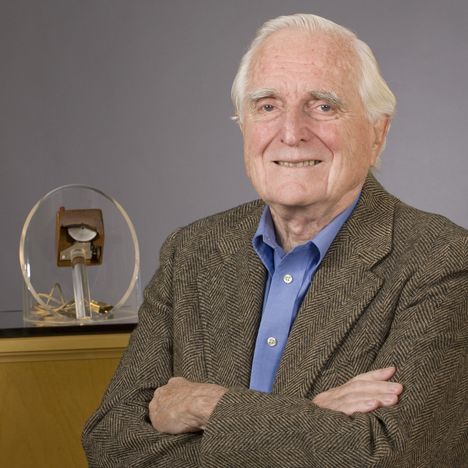News: inventor of the computer mouse Doug Engelbart has died at the age of 88.
Transforming the way we understand computers and interact with technology, the mouse is regarded as one of the greatest innovations of the twenty-first twentieth century. The point and click system remains largely unchanged since its inception, and over one billion mice have been sold since it was made commercially available in 1984.
"Doug’s legacy is immense,” said Curtis R. Carlson, Ph.D., president and CEO of Stanford Research Institute (SRI) where Engelbart worked for 20 years. "Anyone in the world who uses a mouse or enjoys the productive benefits of a personal computer is indebted to him."
Engelbart developed the computer mouse technology in the early 1960s. Bill English, the then SRI chief engineer, went on to design the first prototype in 1964 and the patent was issued in 1970. SRI went on to license the mouse technology to companies including Apple.
Engelbart unveiled his wooden prototype mouse at the 1968 Joint Computer Conference in San Francisco in what's widely referred to as "the mother of all demos". He demonstrated breakthrough innovations such as hypertext linking, real-time text editing, the use of multiple windows and shared-screen teleconferencing.
Engelbart held a vision for computers augmenting human intellect and dedicated his research to increasing what he called the collective IQ. For Engelbart, "the mouse was one part of a larger technological system whose purpose was to facilitate organisational learning and global online collaboration," says SRI.
"Doug leaves a rich legacy of past accomplishments and his novel thinking will inspire generations to come," said the Doug Engelbart Institute in a short statement on its website this week.
Tributes and recognition continue to pour in to the institute's Facebook page this week: "So much of what we use today is owed to this mans genius mind. The internet, the computer mouse, the hyperlink," said Karl Brody. "Doug Engelbart was the greatest innovator of the 20th Century and I am deeply saddened by his passing," said William Miller. "The mouse was only one of his many innovations."
Engelbart studied electrical engineering at Oregon State University and served as a radar technician during World War II. He worked briefly at as an electrical engineer for Nasa's predecessor, the National Advisory Committee for Aeronautics (Naca), before leaving to pursue a doctorate at the University of California, Berkeley. He joined SRI in 1957 and led its Augmentation Research Center (ARC) from 1959 to 1977.
He founded the Bootstrap Institute, now the Doug Engelbart Institute, which works closely with industry stakeholders to implement his work and helped develop the world's first operational packet switching networks, Advanced Research Projects Agency Network (ARPANet), and the progenitor that led to the internet.
Engelbart received the National Medal of Technology in 2000 and in 1997 was awarded both the Lemelson-MIT Prize and the Turing Award.
Portrait of Doug Engelbart with his original mouse was taken in 2008, courtesy of SRI International.

